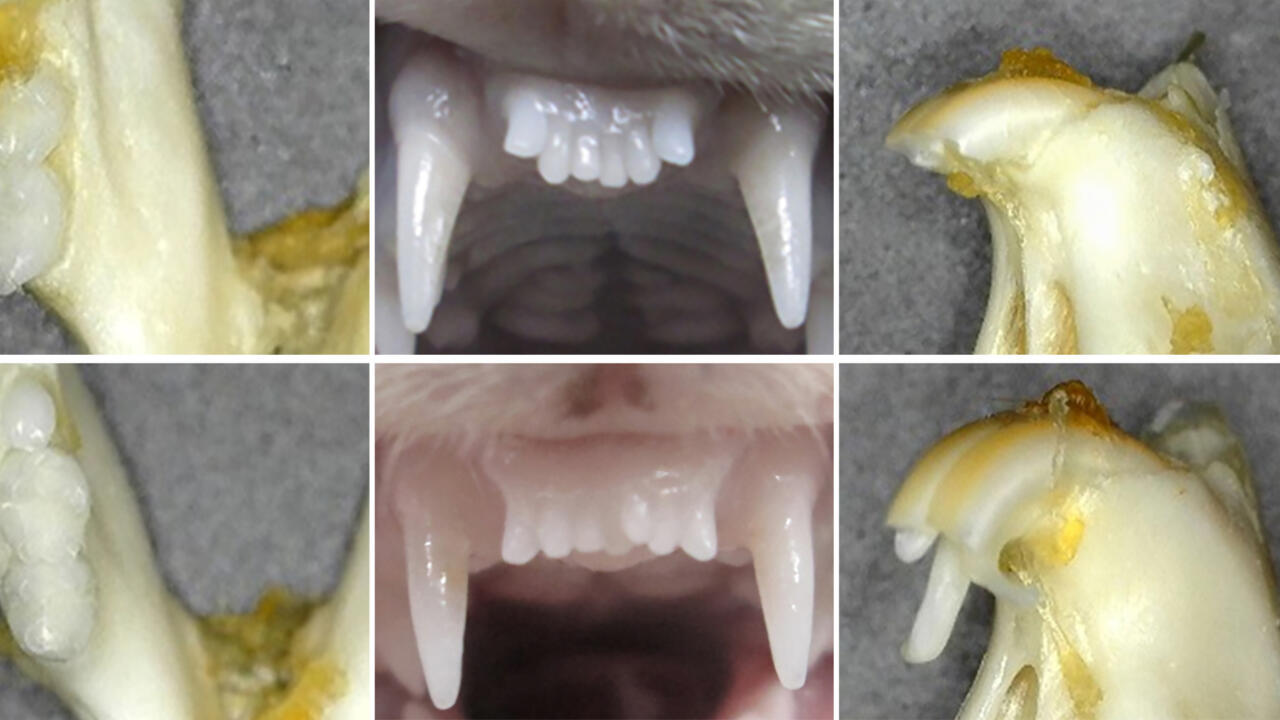Unlike reptiles and fish, which usually replace their fangs on a regular basis, it is widely accepted that humans and most other mammals only grow two sets of teeth. But hidden underneath our gums are the dormant buds of a third generation, according to Katsu Takahashi, head of oral surgery at the Medical Research Institute Kitano Hospital in Osaka.
His team launched clinical trials at Kyoto University Hospital in October, administering an experimental medicine to adult test subjects that they say has the potential to jumpstart the growth of these concealed teeth. It’s a technology “completely new” to the world, Takahashi told AFP.
Prosthetic treatments used for teeth lost to decay, disease or injury are often seen as costly and invasive. So “restoring natural teeth definitely has its advantages”, said Takahashi, the project’s lead researcher.
Tests on mice and ferrets suggest that blocking a protein called USAG-1 can awaken the third set, and the researchers have published lab photographs of regrown animal teeth. In a study published last year, the team said their “antibody treatment in mice is effective for tooth regeneration and can be a breakthrough in treating tooth anomalies in humans”.
For now, the dentists are prioritising the “dire” needs of patients with six or more permanent teeth missing from birth. The hereditary condition is said to affect around 0.1 percent of people, who can have severe trouble chewing, and in Japan often spend most of their adolescence wearing a face mask to hide the wide gaps in their mouth, Takahashi said. “This drug could be a game-changer for them,” he added. The drug is therefore aimed primarily at children, and the researchers want to make it available as early as 2030.
A confident Takahashi argues that the location of a new tooth in a mouth can be controlled, if not pinpointed, by the drug injection site. And if it grows in the wrong place, it can be moved through orthodontics or transplantation, he said.
This could be particularly welcome news in Japan, which has the second-oldest population in the world. Health ministry data shows more than 90 percent of people aged 75 or older in Japan have at least one tooth missing. “Expectations are high that our technology can directly extend their healthy life expectancy,” Takahashi said.



Well that sounds like it’ll either be disappointing, painful, or prohibitively expensive, probably a mix of the three.
Ah, but you missed the most interesting problem, the side effects. Like, what if one of the rare side effects is sometimes you grow a tooth where you aren’t supposed to. Like in your butt.
That would bite.